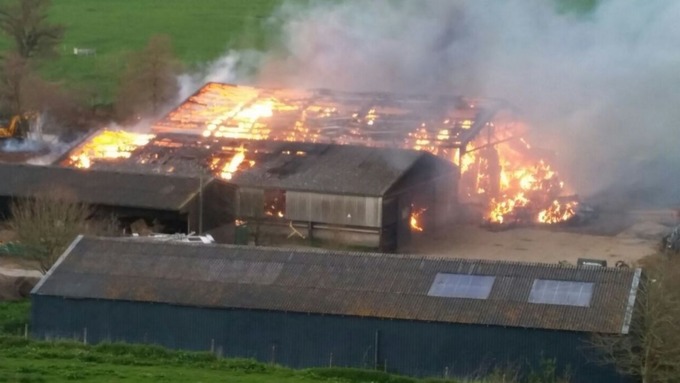THE COST of farm fires in the UK hit a four-year peak last year, with 2018’s prolonged, dry summer and early harvest causing devastation in the countryside.
Claims figures from the UK’s leading rural insurer NFU Mutual reveal that farm fires cost £46.4m in 2018, an increase of 27.5% on the previous year.
Farm fires cost Wales £900,000 in 2018. While this is a fall of 32% from 2017, farm fires remain a significant risk in the area. The East of England was the worst-affected area of the UK, with claims totalling £11.1m. Scotland was the second worst-affected area (£7.6m), followed by the South West (£7.2m).
The scale of farm fires has prompted a call to farmers to check their fire prevention methods and evacuation procedures.
Rebecca Davidson, NFU Mutual Rural Insurance Specialist, said: “Fire remains one of the greatest risks to the lives and property of farmers.
“Our latest figures serve as a crucial reminder to be alert to the danger and have plans prepared and shared with family members and staff. It is possible to manage the risks by taking all possible steps to prevent fires breaking out, and to have clear plans in place to evacuate people and livestock safely in the event of a fire.”
Electrical fires were the most common cause of farm fires in Wales in 2018 (53%), with the prolonged, drier summer contributing to the scale of blazes. According to the Met Office*, 2018 was the driest summer since 2003 and hottest since 2006. These conditions and an early harvest left UK farmers particularly vulnerable to fires, with tinder dry crops and overheating combines and farm machinery.
The second most common cause of farm fires in the region was fires spreading from elsewhere, such as a barn or homestead (16%).
Ian Jewitt, Managing Director of NFU Mutual Risk Management Services, said: “Electrical faults are the biggest cause of farm fires across the UK and we’d advise farmers to schedule regular safety checks of electrical equipment to help minimise that risk. Consider fencing off straw stacks and farm buildings to discourage arsonists and make it harder for fires to spread by keeping hay and straw at least 10 meters away from farm buildings.
“To enable you to fight a small fire safely, keep fire extinguishers in good working order and make adults living and working on the farm aware of where they can be found and how they should be used.”

















Add Comment